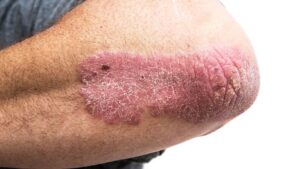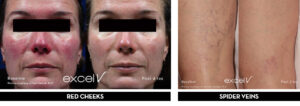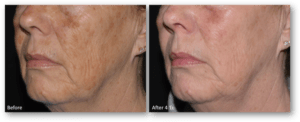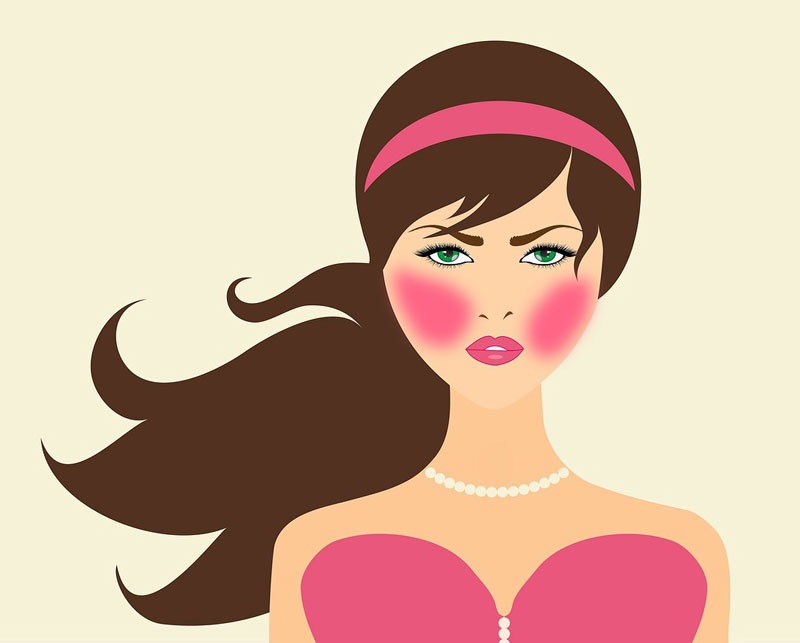
Facts About Rosacea
What is rosacea?
Rosacea is a long-term disease that causes reddened skin and pimples, usually on the face. It can also make skin thicker and cause eye problems. It is estimated to affect 16 million in the United States alone. If left untreated, the condition can worsen.
Who can get it?
Anyone can get rosacea, but it is more common among these groups:
- Adults ages 30 to 60.
- Women, especially during menopause.
- People with fair skin. Lighter skin also makes the disease more apparent
What are the symptoms?
Rosacea usually causes your face to become red or flushed. It may look like:
- Redness at the center of your face, including your forehead, nose, cheeks and chin.
- Small red blood vessels that become visible under your skin.
- Bumpy skin or pimples.
You might also have these other symptoms of rosacea:
- A swollen, bumpy nose (this usually happens to men).
- Skin that feels burning, swollen or warm.
- Thicker skin on your face, especially if you have an advanced case of the disease.
Many people who have rosacea can get eye problems. These may include:
- Eyes that are red, dry, itchy, burning or watery. You might feel like you have sand in your eye.
- Eyelids that are inflamed and swollen.
- Eyes that become sensitive to light.
- Blurred vision, or some other kind of vision problem.
What causes rosacea?
Doctors don’t know what causes rosacea, but your family history or genes might make you more likely to get the disease.
If you blush a lot, you may also be more likely to get rosacea. Some researchers think rosacea occurs when blood vessels expand too easily, causing you to blush.
How is it treated?
There is no cure for rosacea, but treatment can help make your skin look and feel better. Your doctor may suggest antibiotic medicines that you apply directly on your skin or take in a pill. It may take several weeks or months for your skin to start looking better.
Other skin treatments may include:
- Gels to help your skin look less red.
- Electrosurgery or laser surgery to reduce the appearance of small red lines on your skin. Laser treatments include Excel V, which is available at the DeSilva Dermatology office.
- If your nose is bumpy and swollen, you may be able to have some extra skin tissue taken off to make it smaller.
Treatments for eye problems may include:
- Medicines, such as steroid eye drops.
- Cleaning your eyelids to reduce infections. Your doctor may recommend scrubbing your eyelids gently with watered-down baby shampoo or an eyelid cleaner and then applying a warm (but not hot) compress a few times a day.
What can I do about the condition?
You can take an active part in treating your rosacea. Besides going to your doctor regularly, you can also try these things to reduce your symptoms:
- Keep a written record of what seems to make your rosacea worse. This may help you figure out what irritates your skin.
- Use a sunscreen every day. Get one with a sun protection factor (SPF) of 15 or higher that protects against UVA and UVB rays (two kinds of ultraviolet rays that can damage your skin).
- Use a mild lubricant on your face if it helps, but try to avoid products that irritate your skin.
- You might try a green-tinted makeup to make your skin look less red.
- Talk to your doctor if you feel sad or have other signs of depression. Some people with rosacea feel bad because of the way their skin looks.
Some things can make your rosacea become worse or flare. What causes a flare in one person might not cause a flare in another person. Although these factors have not been well-researched, some people say these things make their rosacea worse:
- Heat, including hot baths
- Exercise
- Sunlight
- Wind
- Very cold temperatures
- Hot or spicy foods and drinks
- Alcohol
- Menopause
- Emotional stress
- Long-term use of steroids on the skin
- Bacteria
“Rosacea treatment is twofold,” says Dr. DeSilva. “One is medical/laser treatment, but more importantly is behavior modification, including avoiding triggers and using sunscreen.”
If you have the symptoms of rosacea, contact us for an appointment today.

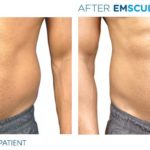 Previous Post
Previous Post Next Post
Next Post
